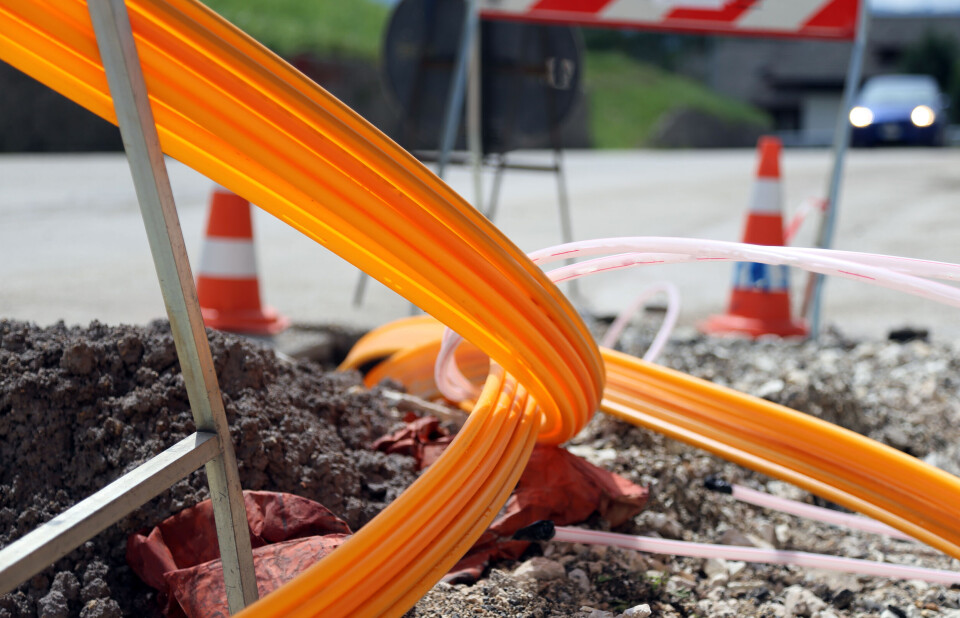-
Mysterious boom rattles residents in south-west France
Local community turns to social media for answers
-
France tightens reimbursement rules for flight delays or cancellations
New measures include mandatory mediation and new claim procedures
-
What snow conditions look like for skiers across French Alps and Pyrenees
Ski resorts are expected to get busier as school holidays begin this weekend
Internet in France: Complaints about fibre at all-time high
The number of fibre issues reported to the communications mediator exceeded those concerning ADSL for the first time last year – but issues with mobile contracts are still the most common

Complaints about internet provider service in France are at an all-time high, with reports about the deployment of fibre connections making up 30% of all grievances, ahead of ADSL for the first time.
The national telecoms mediator was consulted 5,500 times in 2021 by consumers unhappy with the quality of their internet service.
Complaints about fibre made up 30% of the cases considered, a 6% rise year-on-year. This is the first time that fibre reports have exceeded those regarding ADSL, which made up 27% of complaints.
Valérie Alvarez, electronic communications meditator, told Le Figaro: “It reflects the general state of the market. Last year, there were more sign-ups for fibre than for ADSL.”
Difference between ADSL and fibre
ADSL uses copper wires and the traditional phone network to carry digital data. It has been sold in France since 1999. Because it uses normal phone lines, as soon as a district or home is connected to a landline, internet access is possible. However, it is much slower than fibre.
In contrast, optical fibre internet does not use the telephone network at all, and instead uses glass or plastic wires that carry data via conducting light. It is much faster than ADSL.
Read more: Online map follows fibre roll-out in France
Have you had problems with your internet, especially fibre, in the past few months? Let us know at news@connexionfrance.com.
‘False fibre’
Many of the complaints centre on the fact that some properties may be advertised as “falsely eligible for fibre”, Ms Alvarez said. This means that some homes may be considered connectable in theory, but in reality the fibre connection does not reach the property itself.
This means that if a consumer is adamant that they would like fibre, they will need to pay for the extra work to bring the cable to their door, including any work necessary on the public road.
Ms Alvarez said: “Operators need to make it clearer to clients that they will need to pay for these works.”
Read more:Is my home in France eligible for fibre-optic internet?
Poor installation
Even when work is done to connect properties to fibre, many of the complaints centre on how long this takes, and the quality of the work.
One complaint detailed how an installer pierced a hole in the ceiling to bring up a wire – except the hole was right in the middle of a bedroom upstairs. Another punctured a window frame, causing its waterproof seal to be broken. Another installed the fibre through a doorway, stopping the door from closing.
These issues are often due to a lack of training, which operators have been slow to address, Ms Alvarez said.
She “recommends that consumers are at home during the installations and to not leave even teenagers alone [with workers], because often they will not dare say ‘no’ to careless installers”.
Lack of connection
Some consumers simply reported a lack of connection, either because their fibre had been cut off due to a technician who had come to install it at another property, or simply because of “technical dysfunction”.
[advert]
Rising mobile costs
Issues with mobile connections still make up 39% of all problems reported to the mediator, with contracts the main source of complaints.
These include unexpected rises in the cost of monthly contracts, or additional charges for extra data, for example.
In such cases, the mediator advises consumers to read letters from their network carefully, and not to dismiss them as spam. Often, networks will advise clients of price rises in advance, and consumers can often dispute or refuse the changes if they wish.
Related articles
How can I find the internet speed potential of our home in France?
French countryside better connected to fibre internet than cities
Villages in France fed up with weak signal install their own internet
























